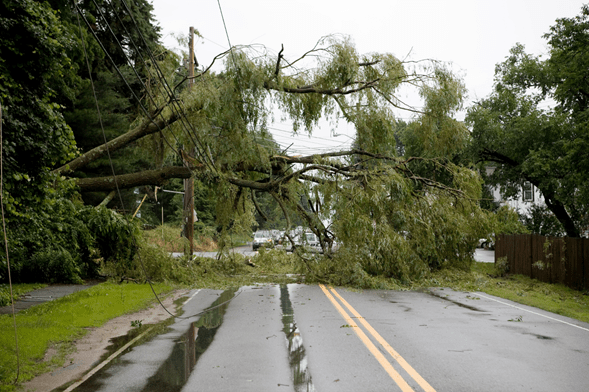
You’ve had one too many utility outages and have decided you need a back-up power source for your facility. Now you need to determine what type of system is going to best suit your needs. There are several options available for back-up power, and pros and cons to each.
Back-Up Power Options
The most traditional form of back-up power is a stand-by generator. They are relatively low cost to purchase and can be set to manually or automatically engage in the event of an outage. Before going this route, ensure that your fuel source (diesel, propane, natural gas) will be reliable in the event of a grid outage. As we have seen in some large recent outages across the country, fuel scarcity and utility outages can be highly intertwined and difficult to plan for. Stand-alone generators must also be sized for the peak demand that will be serviced during an outage. This means that a large portion of the “capacity” of the generator may go unused.
What about solar? A traditional grid-tied solar installation WILL NOT produce energy during a utility outage. Traditional solar systems use the grid as a reference for what voltage and frequency to run at; when that reference is unavailable, the system shuts down to prevent an unsafe situation. Adding a battery energy storage system (BESS) can allow for the system to operate during an outage by providing this reference; however, not all BESS systems are capable of this, and additional electrical integration may be required.
Solar combined with a BESS is often referred to as solar + storage. When looking into solar + storage as a back-up option, consider how much daily energy will be created during a worst-case day (little to no sunshine, shorter daylight hours) and how that compares to energy needs of the facility. You may need to oversize the system to get your minimum needs on a low-solar day.
Solar + storage has an advantage over traditional generators in that you benefit from the asset even if you never have an outage. The solar will generate electricity and offset your usage year-round. The BESS can even be configured to help shave peak demand, which will save costs on your utility bill.
The Best of Both Worlds
Is it possible to have back-up power that’s reliable and efficient? That’s where a microgrid comes in. It allows you to combine various types of energy generation with energy storage, taking advantage of each of their unique benefits. Benefits of combining a traditional generator, solar and BESS in a microgrid system include:
- The generator will run at peak efficiency and until batteries are fully charged, and then turn off.
- Solar can be sized for best financial payback, with the generator making up additional energy requirements.
- Can run completely off-grid as long as fuel supply is available.
- Will have some amount of solar-generated uptime each day, which can be very impactful in certain applications.
Microgrid systems come with the most upfront costs, but the financial payback is often the most attractive thanks to the energy advantages realized. EnTech Solutions offers lease or energy-as-a-service (EaaS) agreements, which can help offset or eliminate upfront capital requirements.
When considering back-up energy for your organization, be sure to consider the full value of that energy, in addition to the costs. EnTech Solutions can walk you through the best options to meet your complete energy needs.
Thank you for checking out the EnTech Solutions blog. To stay up to date with technologies, developments and trends about clean energy, please subscribe.








